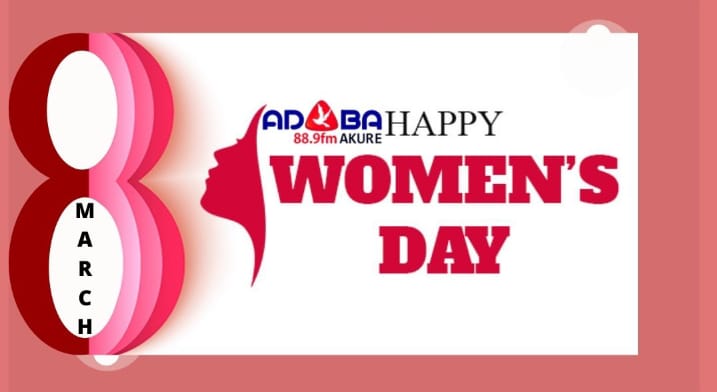Roles of Women in Nation Building
Michael Akintunde
Women have been playing leading roles in shaping our nation and this dates back to the pre-colonial era. In the history, we have read about women, who played active part in the administrative system and business.
Women during the pre-colonial period were allowed to participate in the administration of communities. For instance, the exploit of Iyalode (women leader) of the old Oyo Empire has remained the reference point on how political involvement women can engender a free society. Not only did they shape the political system of the period, they also act as mediators in inter-ethnic rivalry. This can be seen in exploit of Moremi during the Ife-Modekeke war.
The advent of colonialism made women to disengage in political participation in the country. In this era, women’s role was limited to trading and other social activities, leaving out politics for the men. The colonial masters can be said to be chauvinistic in nature, having left out the local women in their indirect rule policy.
Though, the likes of Mrs Margaret Ekpo, Mrs Janet Mokelu and others were members of the Eastern House of Assembly. The late Mrs Funmilayo Ransome-Kuti, though not a full-fledged politician, was a very strong force to reckon with in the politics of the Western Region. Hajia Gambo Sawaba waged a fierce battle for the political and cultural emancipation of women in the North. They made impacts in pre-independence era and surmounted so many obstacles and limitation but their exploits still stand as a legacy up till today.
The coming of Gen. Ibrahim Babangida’s regime brought the role of women in the country’s politics to the front burner. The office of the first lady was first institutionalised by Maryam Babangida. Other women who have made impact in the country’s politics include, Mrs. Ngozi Okonjo-Iweala, the former Minister of Finance.
Mrs Obi Ezekwesili also left a huge landmark in the history of Nigerian politics. The late Prof Dora Akunyili, former Minister for Information, also performed credibly when she was the Director-General of National Agency for Food, Drug Administration and Control (NAFDAC); she waged war against adulterated drug dealers, starting in her home state.
There are many other women in politics that have done very well and still performing excellently well.
Though recently women have become actively involved in the country’s politics unlike before, nevertheless, they are still faced with some challenges that limits their chances and sometimes have some psychological effect that kills their morale.
However, the role of women in our country can be re-energised and accorded popularity.
The role of women in a country’s administration has regained its prominence internationally.
Former Liberia president Ellen Johnson-Sirleaf made history as Africa’s first female president.
Also, we have the likes of Hilary Clinton in the United States. The world has, in the past decades, witnessed an unprecedented expansion of women’s rights, being one of the most profound social revolutions we have ever seen. Couple of decades back, only two countries allowed women to vote.
Today, that right is virtually universal.
Millions of men and women around the world now support the call for gender equality, although there is much to be done especially in developing countries like Nigeria.
In sum, it is apparent that no appreciable development can be made either at the local, national or international platform without recognising women as key players. The nation must empower, up-skill and invest in girl-child for a better society.


